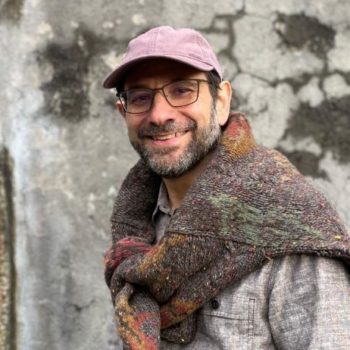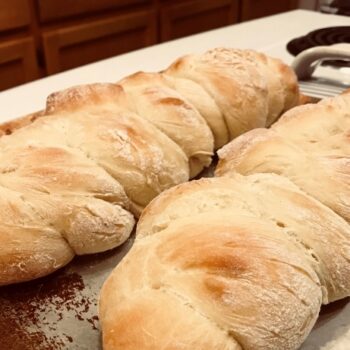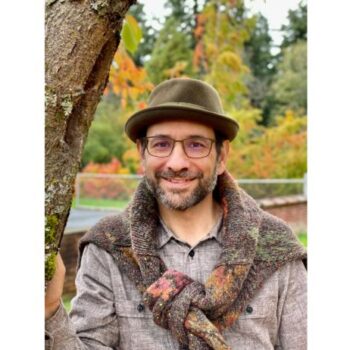In the ancient Tent of Meeting, five types of offerings were brought before God: burnt offerings (Olah), grain offerings (Minchah), peace offerings (Shelamim), sin offerings (Chatat), and guilt offerings (Asham). Our ancestors brought these sacrifices to address their needs. Sometimes they needed to make amends, assuage their feelings of guilt, connect with God, or express gratitude. We no longer bring material sacrifices, yet we share a common humanity. Our needs have not changed, only how we seek to fulfill them.
You might think burnt offerings are a thing of the past, but it’s still traditional to save and burn a bit of the challah we bake before Shabbat. You might not have had the experience of being a priest and washing your hands before offering a sacrifice to God, but there’s a good chance you’ve washed and said the blessing for handwashing before eating. As Jews, it’s not a matter of being doomed to repeat history because we forget it. We remember and live in this history every day of our lives.
I want to discuss friendship, the hiddenness that arises from antisemitism, and how joy is both the corrective and outcome that occurs when we step out of the places where we have been hiding.
Mel Sirner was my senior rabbi during my first tenure after rabbinical school. It's likely you haven't heard of him because he showed no interest in fame, enhancing his reputation, or earning a spot on lists of America's most influential rabbis. Instead, he consistently dedicated himself to his work, guiding his community with unparalleled steadiness. His aversion to the spotlight, a hallmark of American success, was a natural extension of his character—kind, genuine, and devoid of ego—qualities as rare as they are essential for anyone in the rabbinate.
When you break an oath you’ve made to another person, you apologize, plain and simple, and the other person decides whether or not to forgive. But what do you do when you break an oath to yourself? In those cases, the apology and the forgiveness are both up to you, and the first step to making progress of any kind is being honest with yourself.
For many of us, the image of an oasis has long been embedded in our cultural and personal memories. Certainly films such as Peter O’Toole’s portrayal in Lawrence of Arabia contributed to that, yet the concept of a sanctuary in a harsh world has a special resonance, and oases sometimes figured in childhood cartoons. The juxtaposition of a verdant, palm-filled watering hole set amid seemingly unending sands creates a sense of relief.
As we end the book of Exodus we find that the Israelites have created two embodiments of holiness in the Israelite camp: the Tent of Meeting (Ohel Moed) and the Mishkan. The Ohel Moed is a place to be present. On the other hand, the Mishkan, the sacred space where God will dwell among the Israelites, travels with the Israelites and is often at the center of moments of awe and wonder.








